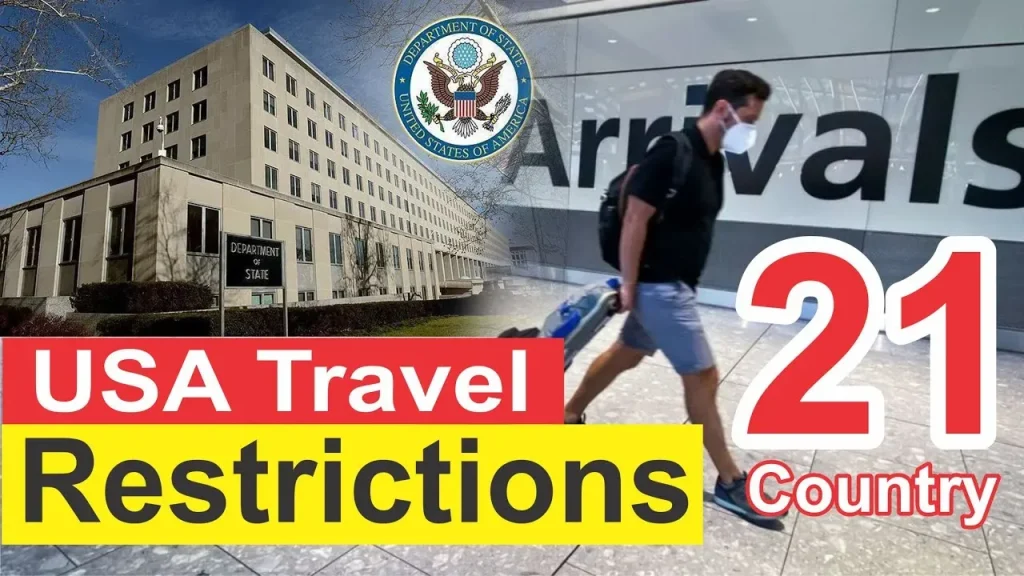Travel concerns to the U.S. have escalated significantly among international travelers, particularly those from Southeast Asia, who are increasingly hesitant to consider America a suitable travel destination. Recent surveys indicate that nearly 80% of Southeast Asian respondents feel the U.S. is losing its allure, with many citing fears surrounding discrimination, the Trump administration’s policies, and rising gun violence as pivotal issues affecting their travel decisions. As global trends shift, the decline in U.S. tourism seems to stem more from safety apprehensions than economic factors. Countries like Vietnam and the Philippines still harbor a lingering interest in visiting, yet the overarching safety concerns dampen these aspirations. With a complex interplay of cultural ties and the perceived impact of U.S. policies, the travel landscape is shifting, prompting a reassessment of America’s role as a leading tourist destination.
Concerns about traveling to the United States have emerged as a critical topic for potential visitors, particularly from regions like Southeast Asia. Many individuals are now reconsidering their trip plans due to various issues, including fears of discrimination and the impact of recent political changes in the U.S. The ongoing discussion about gun violence further exacerbates these worries, painting a less secure picture of travel in America. Factors such as the political climate and perceptions of safety have led to a documented decline in interest toward U.S. tourism, particularly among international travelers. As individuals weigh the risks versus the rewards, the future of travel to the U.S. remains uncertain, with many turning to alternative destinations.
The Declining Appeal of U.S. Travel Among Southeast Asians
Recent surveys indicate a significant decline in the appeal of the United States as a travel destination among Southeast Asian travelers. Nearly 80% of respondents from countries like Vietnam and the Philippines express a waning interest in visiting the U.S., citing safety concerns over political climates and rising gun violence. With headlines highlighting tragic incidents and discriminatory practices, many travelers feel that the risks involved outweigh the allure of U.S. attractions. Additionally, many individuals are reportedly prioritizing destinations perceived as safer and more hospitable.
For younger Southeast Asian travelers, the decision to skip travel to the U.S. is influenced heavily by social media narratives and personal experiences shared in their communities. As internet access and connectivity have surged, these discussions have gained momentum, amplifying fears related to discrimination and violence. Even with the rich cultural experience that the U.S. offers, many choose to stay closer to home or explore alternative destinations in Asia that promise similar experiences without the associated risks.
Travel Concerns to the U.S.: Discrimination and Safety
Travel concerns regarding the U.S. have escalated due to reports of discrimination and societal safety issues. Southeast Asian travelers, in particular, have vocalized discomfort about facing potential bias when interacting with locals or navigating through U.S. airports. Reports have documented instances of racial profiling, leading to apprehensions among potential visitors who fear that they may experience unfair treatment based purely on their ethnicity. This discourages many from considering a trip to the United States, despite cultural ties and familial connections that might otherwise inspire travel.
Moreover, gun violence has emerged as a central worry among Southeast Asian travelers when contemplating their trip to the U.S. Incidents of mass shootings and other violent acts broadcast in the news have spurred caution and fear. This concern is compounded by cultural norms in Southeast Asia that prioritize communal safety. The perceived volatility of U.S. urban environments makes travelers think twice about their plans, shifting their focus to countries that ensure a more stable and peaceful experience.
Impact of the Trump Administration on Travel Sentiment
The Trump administration has left a notable imprint on travel sentiment towards the U.S., particularly among Southeast Asian populations. Tariffs imposed during his tenure have created economic apprehensions, leading travelers to feel that their money would be better spent elsewhere. The shift in trade relations has made travel to the U.S. less financially appealing, prompting many to explore alternative destinations within Southeast Asia that offer similar experiences at a fraction of the cost.
Additionally, the political climate fostered by the Trump administration has heightened feelings of unease among potential travelers. Antagonistic policies and aggressive rhetoric surrounding immigration and international relations have made many think twice before planning their trips. The exhibition of reluctance by governments and citizens abroad leads to a broader perception of the U.S. as a less welcoming environment, deterring many from pursuing travel there.
Cultural Influences and Aspirations Among Southeast Asian Travelers
Despite the concerns surrounding safety and politics, there remains a strong cultural allure that draws Southeast Asian travelers toward the U.S. Many cite Hollywood, American music, and television shows as significant influences that shape their perceptions of the country. The aspirational image of the U.S. remains prominent, leading some travelers to believe that experiencing American culture firsthand is worth the potential risks, especially those with family connections living in the U.S.
Family ties play a crucial role in the travel decisions of Southeast Asians. Those with relatives in the U.S. often express a desire to visit, finding a balance between safety concerns and the emotional pull of reconnecting with loved ones. This familial aspect contrasts with the broader trends of declining interest, revealing that personal motivations can outweigh generalized fears driven by media narratives and political climates.
Regional Disparities in Interest for U.S. Travel
The interest in traveling to the U.S. varies significantly across Southeast Asian nations, reflecting complex regional dynamics and interests. For instance, responses from travelers in Vietnam and the Philippines showcase a keen desire to visit due to strong diaspora networks and cultural ties. Conversely, Singaporeans exhibit a stark decline in travel interest, with over half of respondents indicating reduced enthusiasm for visiting the U.S. This demonstrates that factors such as economic status, political context, and cultural perceptions heavily influence travel sentiments.
These regional disparities can be attributed to the varying extent of media exposure and personal experiences with travel. While some governments emphasize the importance of diplomatic relations, many travelers hold personal convictions that guide their choices, aligning more closely with their cultural values and social networks. This results in a mosaic of perspectives that challenge the overall narrative of declining U.S. tourism.
Shifting Perspectives on Tariffs and Their Effects
Tariffs and international trade relations have shaped how travelers perceive the U.S. The imposition of tariffs during the Trump administration saw immediate backlash from sectors of the Southeast Asian population, especially those reliant on trade for economic stability. Describing their experiences as restrictive and awkward, many travelers are keen to minimize interactions with the U.S. economy, seeing travel as a luxury that might not be economically viable.
Thus, tariffs not only impact the cost of goods but also the perception of the U.S. as a travel destination. Unsurprisingly, the financial implications have taken precedence in travel planning, with many choosing locales that promise affordability and accessibility without the burden of poor economic relations with the U.S. This ongoing economic dialogue affects the decision-making processes of potential travelers, reinforcing the need for a favorable trade and travel environment.
The Role of Social Media in Shaping Travel Sentiment
The influence of social media on travel sentiment cannot be underestimated. For Southeast Asian travelers, platforms such as Instagram and TikTok serve as portals to not only learn about U.S. travel conditions but also to perceive the general experience of travelers from their communities. With narratives often highlighting safety concerns and incidents of discrimination, social media plays a powerful role in shaping opinions, leading many to reconsider or scrap their travel plans altogether.
Interestingly, positive narratives online about U.S. destinations are often overshadowed by discussions surrounding negative experiences. Consequently, as online sentiment reflects the concerns and reservations of travelers, this virtual narrative influences the decisions of those contemplating trips. By seeing the experiences shared by others, it becomes clear how collective sentiment and individual stories create a complex tapestry of travel attitudes toward the U.S.
Online Sentiment: A Mixed Bag of Perspectives
Exploring online sentiment reveals a complex picture regarding travel to the U.S., with sentiments varying drastically based on geographic and demographic factors. While some regions, such as India, display a notable positivity toward traveling to the U.S., others from Canada express heightened negativity. This split showcases how personal experiences and the surrounding socio-political climate impact perceptions, with many individuals from certain countries retreating from the idea of traveling to the U.S. altogether.
These mixed sentiments have real implications for the U.S. tourism industry, highlighting a need to address both the concerns and desires of potential travelers. Efforts to bolster U.S. appeal to international audiences must consider the nuanced perspectives shared online, steering conversations toward enhancing safety, inclusivity, and hospitality within the travel experience.
Frequently Asked Questions
What are the current travel concerns to the U.S. for Southeast Asian tourists?
Southeast Asian travelers cite various concerns regarding travel to the U.S., including fears of gun violence, potential discrimination, and negative impacts from the Trump administration. Nearly 80% of these travelers believe that the U.S. is losing its appeal as a travel destination.
How has the Trump administration impacted U.S. tourism from Southeast Asia?
The Trump administration has contributed to a decline in interest among Southeast Asian travelers due to policies perceived as discriminatory and the administration’s tough stance on tariffs and immigration. Many travelers from this region are now more hesitant to visit the U.S. as a result.
Are safety concerns influencing Southeast Asian travel to the U.S.?
Yes, safety concerns are a significant factor for Southeast Asian travelers considering trips to the U.S. Many respondents have expressed specific fears regarding gun violence, which has diminished the allure of the U.S. as a travel destination.
What trends are emerging regarding U.S. tourism decline among Southeast Asian countries?
Research indicates that there is a notable decline in interest in traveling to the U.S. among Southeast Asians, with countries like Singapore showing a significant drop. Conversely, nations like Vietnam and the Philippines have shown slight increases in interest, likely due to familial connections in the U.S.
Is gun violence a major concern for travelers considering a trip to the U.S.?
Yes, gun violence is one of the top concerns for travelers from Southeast Asia, significantly influencing their decision to avoid the U.S. Many respondents have indicated that this fear plays a larger role than economic factors in their travel plans.
How do discrimination concerns affect Southeast Asian travel to the U.S.?
Discrimination concerns are at the forefront of Southeast Asian travelers’ minds. Many potential tourists fear that they may face bias based on their ethnicity, which contributes heavily to the declining interest in visiting the U.S.
Has U.S. tourism recovered since the initial drop following the Trump administration?
While there were periods of increased interest in U.S. tourism after Trump’s election, the overall trend since then has shown a decline, especially from regions like Southeast Asia, where many travelers now regard the U.S. less favorably due to various socio-political concerns.
What demographic factors are influencing travel decisions to the U.S. from Southeast Asia?
Younger travelers tend to have different priorities compared to older generations, showing more interest overall in U.S. travel despite concerns. However, perceptions of safety and potential discrimination are crucial considerations for these younger travelers when planning their trips.
Which Southeast Asian countries show the most interest in traveling to the U.S. now?
Currently, Vietnam and the Philippines show the highest interest in traveling to the U.S. among Southeast Asian nations, likely due to strong family ties and cultural ties to the U.S. that outweigh some concerns.
What is the current sentiment regarding travel to the U.S. on social media?
Sentiment analysis shows a mixed perception of travel to the U.S., with notable negativity from countries like Canada and among U.S. citizens themselves. However, regions like India report a largely positive or neutral sentiment toward U.S. travel.
| Key Points |
|---|
| Nearly 80% of Southeast Asians believe the U.S. is losing its appeal as a travel destination. |
| Concerns include discrimination, the Trump administration, and gun violence, according to a CNBC survey. |
| Travelers from Vietnam and the Philippines show the highest interest in visiting the U.S. |
| Younger travelers are more negatively impacted by tariffs and border policies than older travelers, yet remain interested in U.S. travel overall. |
| 55% of Singaporeans report decreased interest in traveling to the U.S. since November of the previous year, showing minimal interest in visiting soon. |
| Global travel interest in the U.S. fell by 13% according to YouGov, indicating a broader decline in perceptions of the U.S. as a travel destination. |
Summary
Travel concerns to the U.S. have significantly risen among Asian travelers this year, with a notable percentage expressing a lack of interest in visiting the country. Various factors contribute to this decline, ranging from safety concerns about discrimination and political dynamics to reports on violence. While travelers from Vietnam and the Philippines remain slightly more inclined to visit due to cultural ties, the overall sentiment across Asia suggests a hesitant approach towards American travel. This trend highlights the need for the U.S. tourism sector to address these concerns and improve perceptions to regain its former appeal as a global travel destination.



